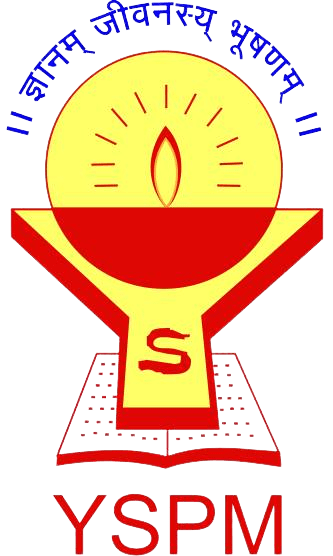Institute
Vision :
YTC, Satara looks forward to become a globally renowned institute of centre of excellence in technology and management education for rural community for technical and professional knowledge.
Mission :
M1. To achieve the quality and an academic excellence in the frontier engineering areas and management relevant primarily to the nation.
M2. To train and produce the highly skilled and globally competent professionals through quality technical education and to prepare them with industry ready engineers for immediate employment and entrepreneurship.
M3. To inculcate and develop the research culture can be attributed to quality outputs in terms of research practices and products.
M4. To develop the professionals having high values of ethics, lifelong learning, teamwork, leadership and social responsibility.
M5. To enhance and empower the rural community by improving the productivity of the agricultural sector.
Department of Civil Engineering
Vision of Department
To become center of excellence by producing Civil engineers having research and development activity, sound technical knowledge, professional skills and social awareness to serve society
Mission of the Department
M1 : To impart quality technical education through interactive teaching learning method.
M2 : To promote research and development activity by encouraging creativity and exposure to real world problem.
M3 : To mentor students for innovating thinking with relevance to entrepreneurship.
M4 : To develop social awareness in graduates to serve society.
Program Educational Objectives (PEOs)
After completing 4 years of the graduation, the student will be able to:
PEO1: Demonstrate technical expertise, leadership and ethical qualities to design & execute Civil Engineering Projects.
PEO2: Exhibit qualities of teamwork with effective communication, life long learning to address real world civil engineering problems.
PEO3: Develop sensitivity towards environment and society for sustainable development including disaster management.
Department of Civil Engineering
Program Outcomes (POs)
PO1 Engineering Knowledge : Apply the knowledge of mathematics, science, engineering fundamentals, and an engineering specialization to the solution of complex civil engineering problems.
PO2 Problem Analysis : Identify, formulate, review research literature, and analyze complex civil engineering problems reaching substantiated conclusions using first principles of mathematics, natural sciences, and engineering sciences.
PO3 Design/Development of Solutions : Design solutions for complex civil engineering problems and design system components or processes that meet the specified needs with appropriate consideration for the public health and safety, and the cultural, societal, and environmental considerations.
PO4 Conduct Investigations of Complex Problems : Use research-based knowledge and research methods including design of experiments, analysis and interpretation of data, and synthesis of the information to provide valid conclusions.
PO5 Modern Tool Usage : Create, select, and apply appropriate techniques, resources, and modern engineering and IT tools including prediction and modeling to complex engineering activities with an understanding of the limitations.
PO6 The Engineer and Society : Apply reasoning informed by the contextual knowledge to assess societal, health, safety, legal and cultural issues and the consequent responsibilities relevant to the professional engineering practice.
PO7 Environment and Sustainability : Understand the impact of the professional civil engineering solutions in societal and environmental contexts, and demonstrate the knowledge of, and need for sustainable development.
PO8 Ethics : Apply ethical principles and commit to professional ethics and responsibilities and norms of the civil engineering practice.
PO9 Individual and Team Work : Function effectively as an individual, and as a member or leader in diverse teams, and in multidisciplinary settings.
PO10 Communication : Communicate effectively on complex engineering activities with the engineering community and with society at large, such as, being able to comprehend and write effective reports and design documentation, make effective presentations, and give and receive clear instructions.
PO11 Project Management and Finance : Demonstrate knowledge and understanding of the engineering and management principles and apply these to one’s own work, as a member and leader in a team, to manage projects and in multidisciplinary environments.
PO12 Life-long Learning : Recognize the need for, and have the preparation and ability to engage in independent and life-long learning in the broadest context of technological change.
PROGRAM SPECIFIC OUTCOMES
PSO-1 : The graduates will analyse and mitigate the natural disasters for the effective disaster management.
PSO-2 : The graduates will be able to acquire sound technical knowledge to analyse and work on critical civil engineering issues.
PSO-3 : The graduates will be enhancing professional abilities to meet industrial need.
